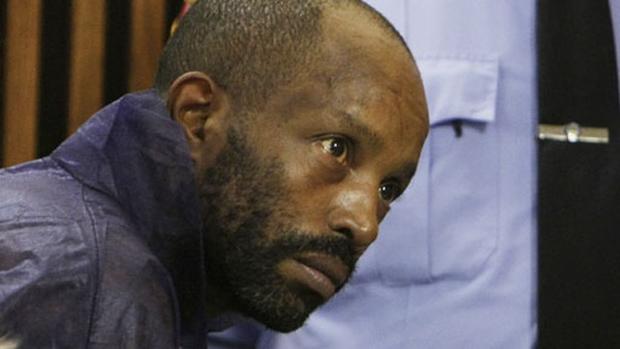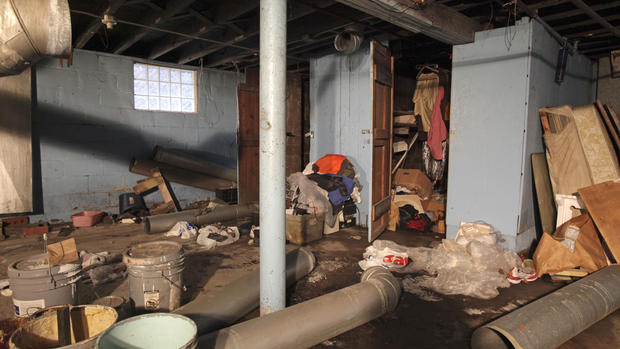Ohio court hears appeal from condemned killer of 11
COLUMBUS, Ohio -- Defense attorneys wasted time challenging evidence against a Cleveland man who killed 11 women and hid the remains in and around his home andshould have focused instead on sparing him from a death sentence, according to arguments before the Ohio Supreme Court.
New lawyers for Anthony Sowell say a better strategy would have been to concede Sowell's overwhelming guilt and push for life without parole based on his background, including a chaotic childhood.
Sowell's attorneys "repeatedly directed the jurors' attention to gruesome and painfully damning evidence," according to a 2012 filing by attorneys Jeffrey Gamso and Erika Cunliffe.
As a result, the attorneys looked desperate and jurors were likely irritated that it dragged out the trial, the filing said.
Sowell, 56, was indicted in 2009 and convicted and sentenced in 2011. Jurors found Sowell guilty of killing 11 women from June 2007 to July 2009. Police found their mostly nude bodies after a woman said she had been raped in the house.
Attorneys for both sides made their arguments Tuesday before the state's highest court.
A decision isn't expected for months. But even if the court upholds Sowell's death sentence, an execution is years away. Sowell could still appeal through the federal courts, and Ohio lacks lethal injection drugs.
Nothing in case law or the Constitution supports the argument that Sowell's attorneys shouldn't have challenged the case against him, according to a 2013 filing by Cuyahoga County assistant prosecutors Katherine Mullin and Kristen Sobieski.
"Sowell had an absolute constitutional right to go to trial and to force the State to prove his guilt on every charge in the indictment beyond a reasonable doubt," they said.
In addition, the evidence in favor of sparing Sowell was slight, consisting mainly of his seven years as a U.S. Marine, assistant prosecutor Christopher Schroeder told justices Tuesday.
Most of Tuesday's hearing was taken up with a separate argument involving Sowell's videotaped interrogation.
At issue is a 2010 hearing during which a Cleveland judge closed the courtroom while he heard arguments for and against allowing the interrogation, which lasts for more than 11 hours.
The judge ultimately allowed its use, and most of it was played during Sowell's trial.
Sowell's attorneys are seeking a new hearing over the interrogation and are hoping for a sentence of life without parole instead of death. Gamso acknowledges Sowell will never be freed.
That hearing should be held even if it wouldn't affect the outcome of a new trial, Gamso said.
"An open trial with the press and the public present imposes on everybody involved a greater sense of propriety and the importance of getting everything and doing everything right," Gamso told the justices.
But Schroeder, the Cuyahoga County assistant prosecutor, said the evidence against Sowell was overwhelming with or without the videotaped interrogation.
"The law and the facts are what they are," Schroeder said Tuesday. "They're not going to change because a couple of people are sitting in the gallery in an open courtroom versus doing it in a closed courtroom."
Justices seemed skeptical about another hearing. Justice Paul Pfeifer said it would be "total foolishness." Justice Judi French questioned whether it would change anything.
Prosecutors say Sowell's victims were recovering or current drug addicts and most died of strangulation. Some had been decapitated, and the bodies of others were so badly decomposed that coroners couldn't say with certainty how they died.
In interviews with police, Sowell said he targeted women who reminded him of his ex-girlfriend, who had been addicted to crack and left him shortly before the killings began.

